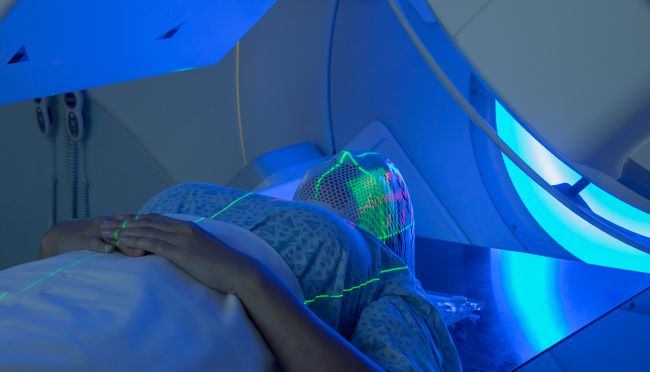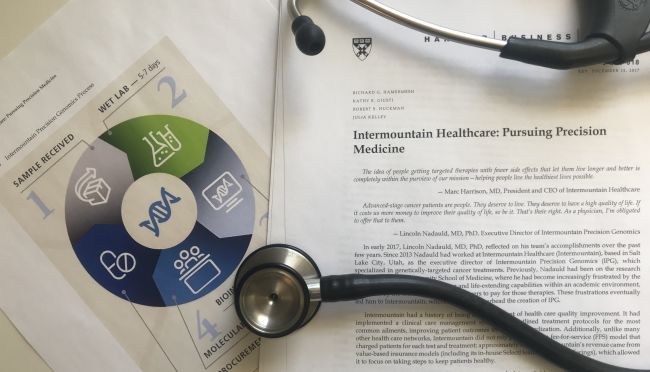Science-Based Business →
→

- 18 Apr 2019
- Research & Ideas
Open Innovation Contestants Build AI-Based Cancer Tool
Radiation oncologists are few in number, especially if you are nowhere near a cancer facility. Could artificial intelligence be used to deliver an oncologist's skills for radiation therapy? Karim R. Lakhani discusses a unique open innovation experiment. Open for comment; 0 Comments.

- 28 Feb 2019
- Cold Call Podcast
Pursuing Precision Medicine at Intermountain Healthcare
What happens when Intermountain Healthcare invests resources in an innovative precision medicine unit to provide life-extending, genetically targeted therapies to late-stage cancer patients? Professors Richard Hamermesh and Kathy Giusti discuss the case and its connections to their work with the Kraft Precision Medicine Accelerator. Open for comment; 0 Comments.

- 30 Nov 2018
- What Do You Think?
What’s the Best Administrative Approach to Climate Change?
SUMMING UP: James Heskett's readers point to examples of complex environmental problems conquered through multinational cooperation. Can those serve as roadmaps for overcoming global warming? Open for comment; 0 Comments.
- 31 May 2016
- HBS Case
Who Owns Space?
Industry is looking to the stars for a new commercial frontier. NASA is looking to industry to help broaden the scope of space exploration. And Professor Matt Weinzierl is looking at what this interplay means for the future of the New Space sector. Open for comment; 0 Comments.

- 11 Nov 2015
- Working Paper Summaries
Public R&D Investments and Private-sector Patenting: Evidence from NIH Funding Rules
By tracing the often-circuitous path from National Institutes of Health (NIH) funding to patented innovations, this research examines the effects of public science on private sector innovation in the life sciences.
- 26 Mar 2012
- Research & Ideas
What Neuroscience Tells Us About Consumer Desire
It's easy for businesses to keep track of what we buy, but harder to figure out why. Enter a nascent field called neuromarketing, which uses the tools of neuroscience to determine why we prefer some products over others. Uma R. Karmarkar explains how raw brain data is helping researchers unlock the mysteries of consumer choice. Closed for comment; 0 Comments.

Science: The Unlikely Frontier for New Business Ideas
Iterative R&D might get products to market quickly, but innovation grounded in scientific research tends to be more valuable, says research by Joshua Lev Krieger and colleagues. Open for comment; 0 Comments.